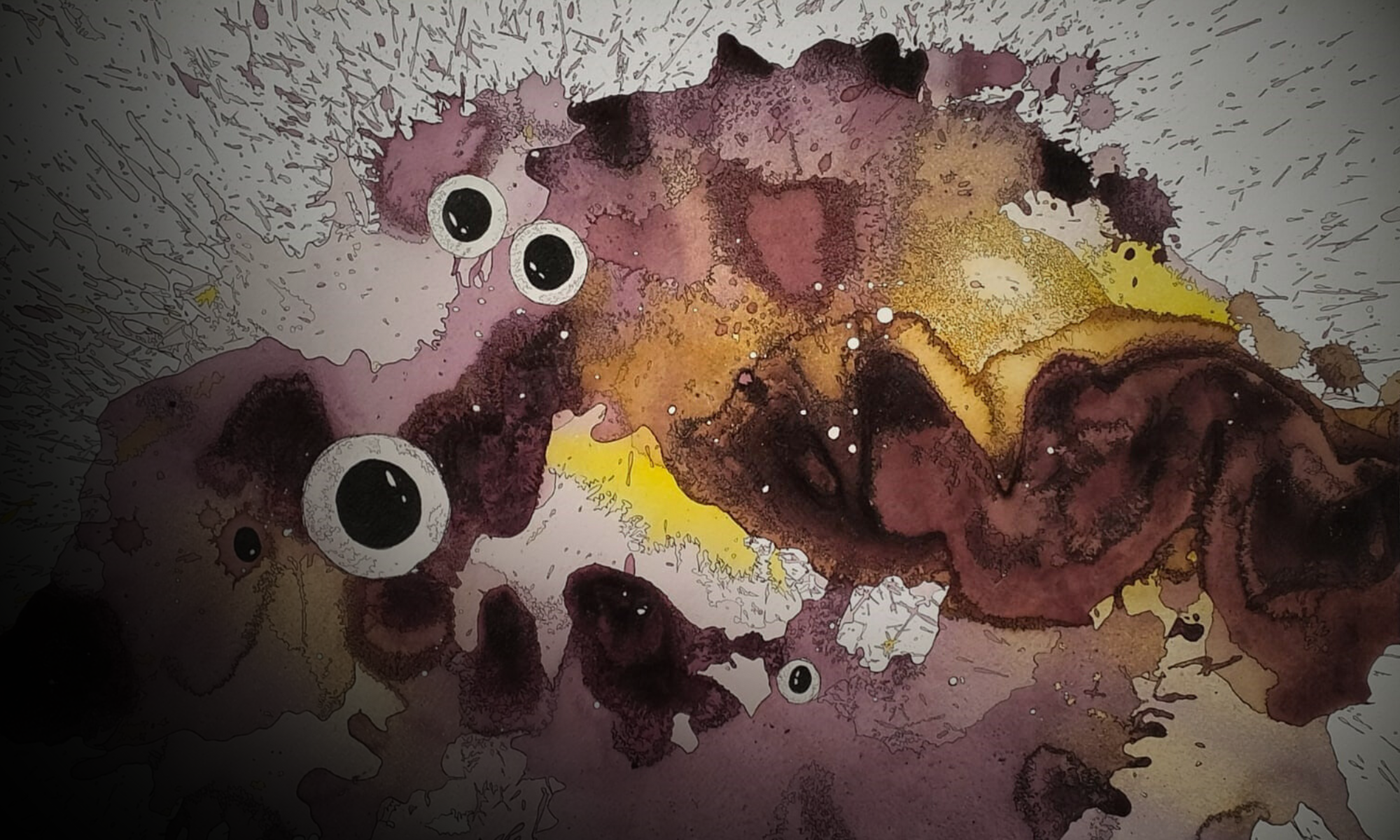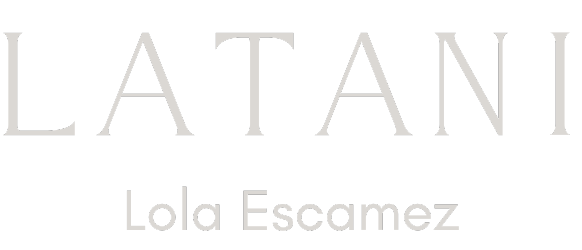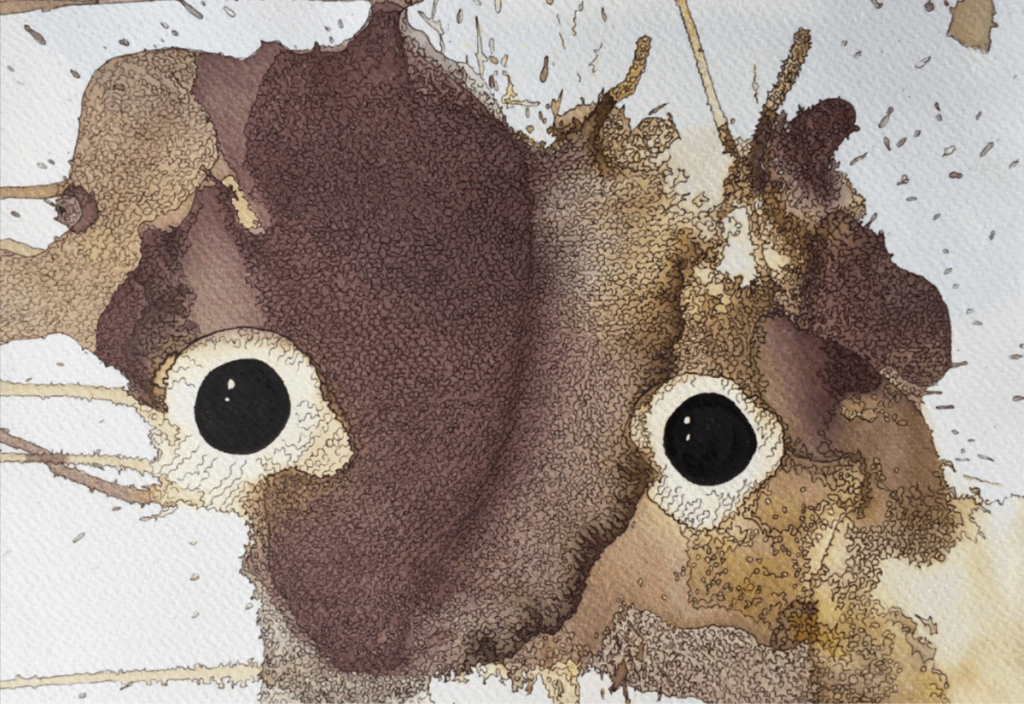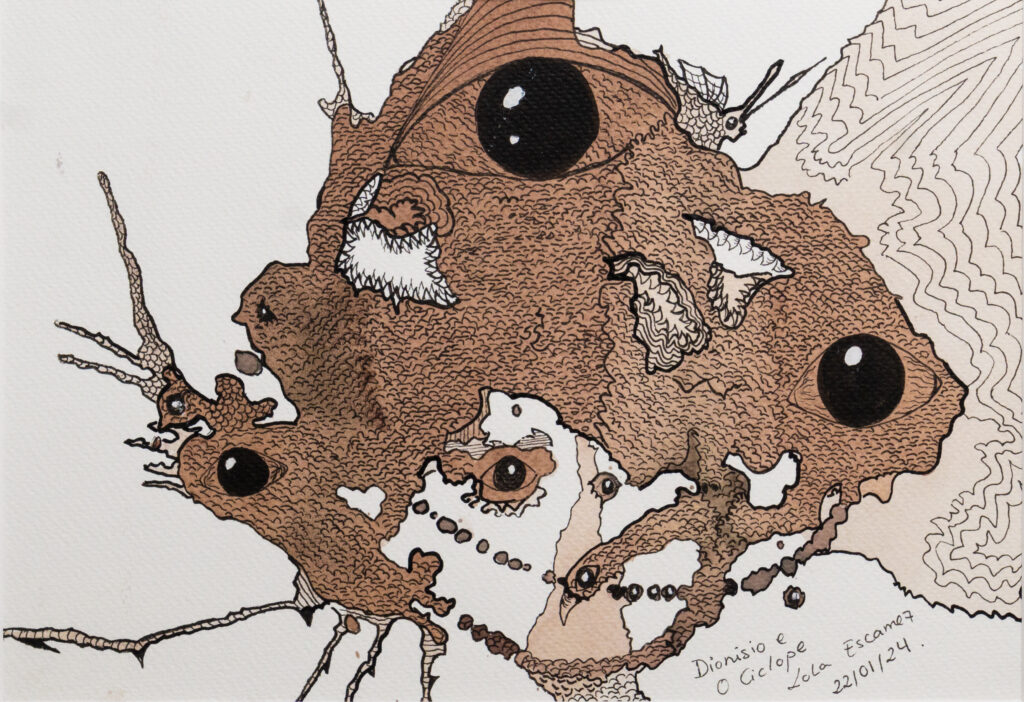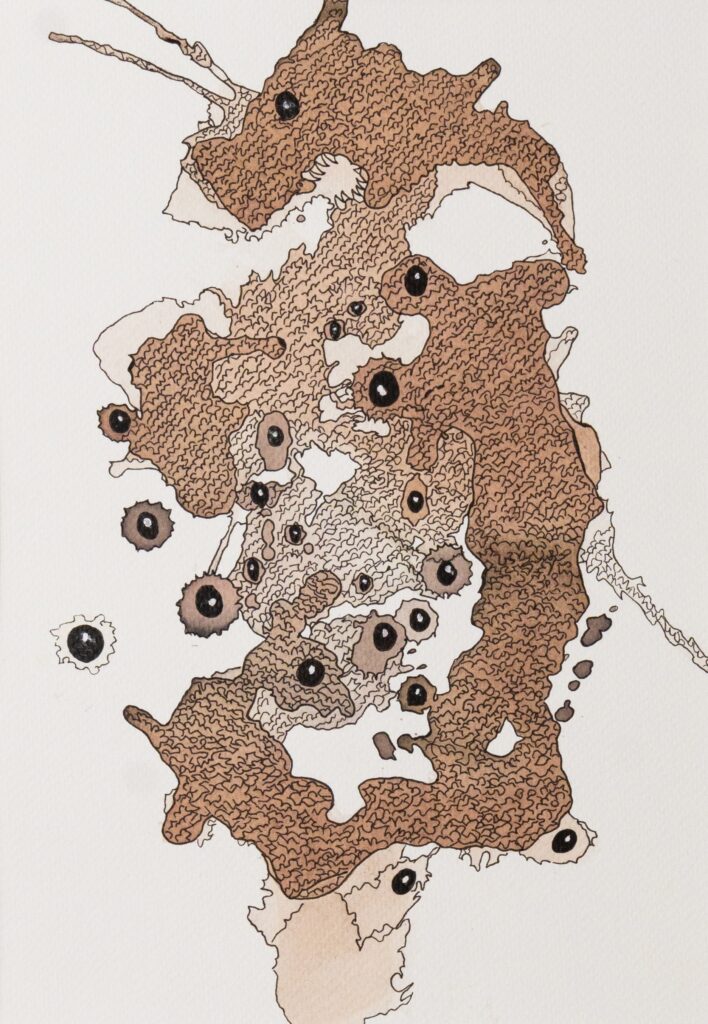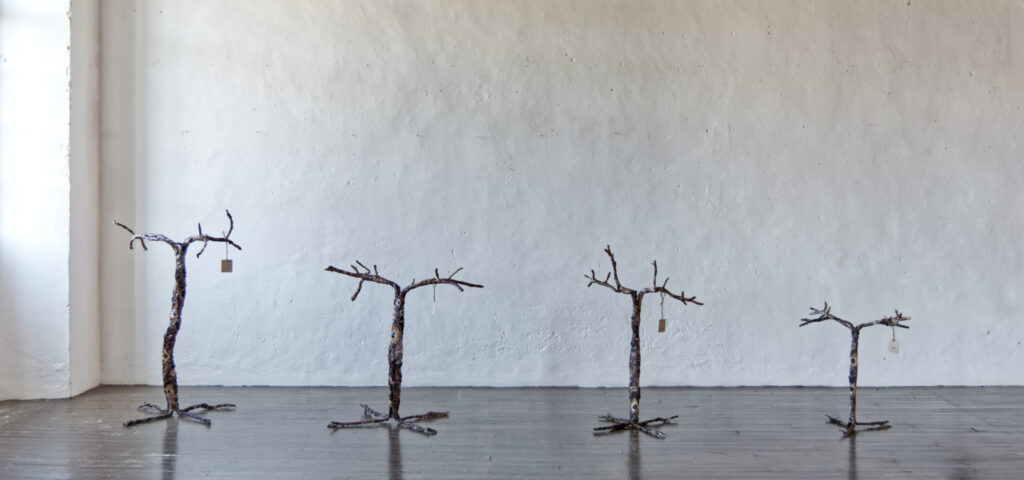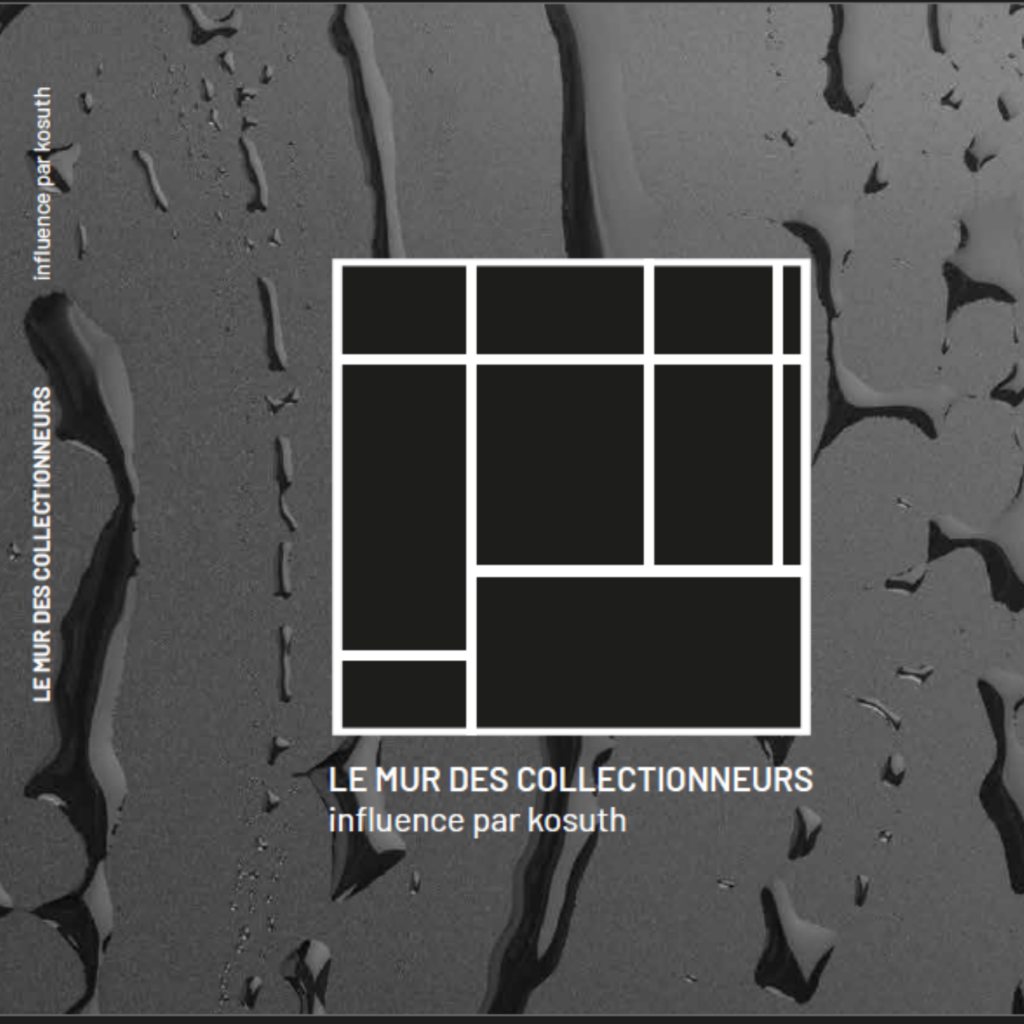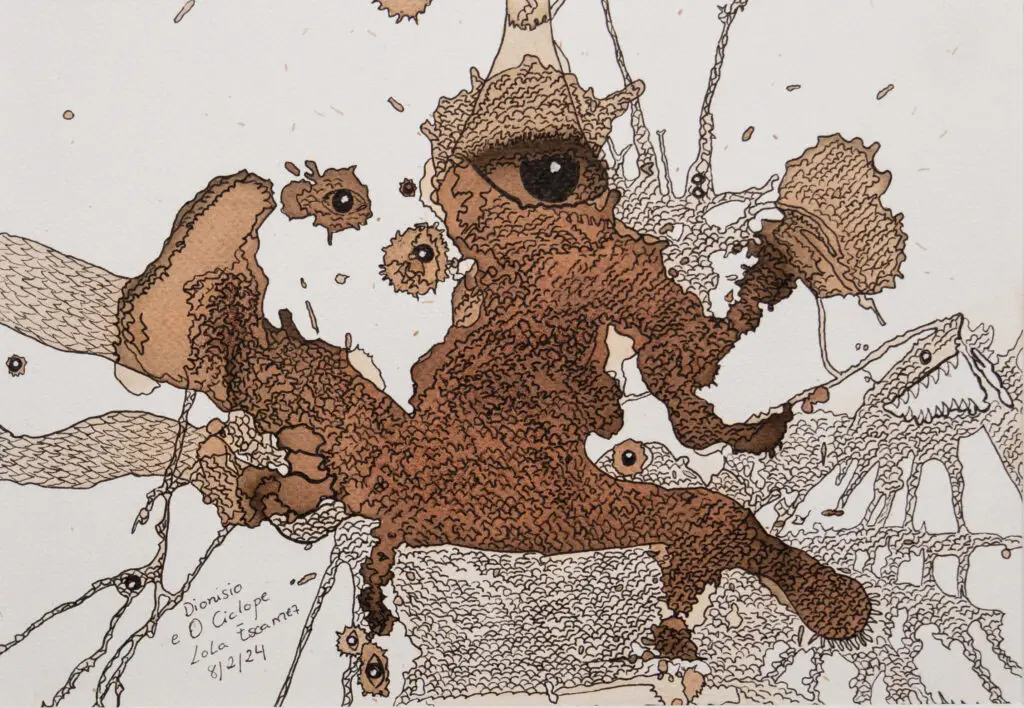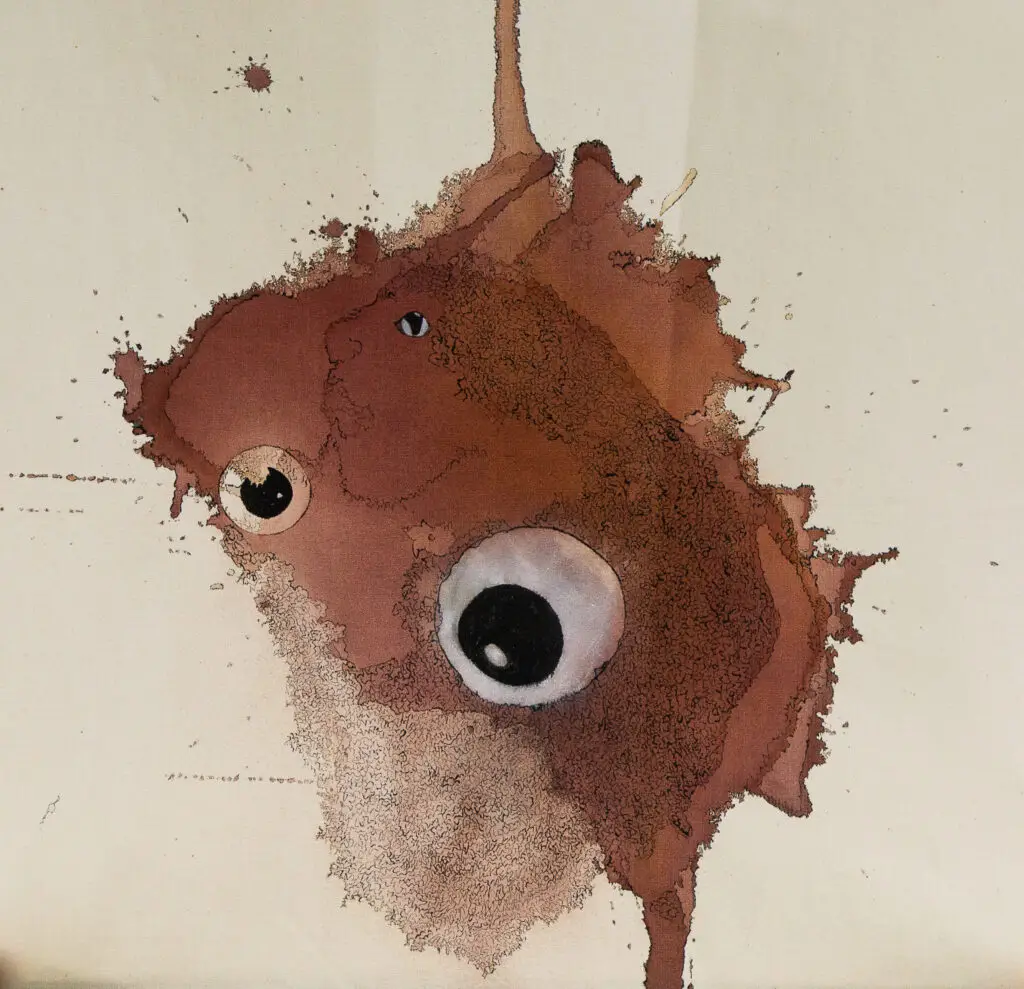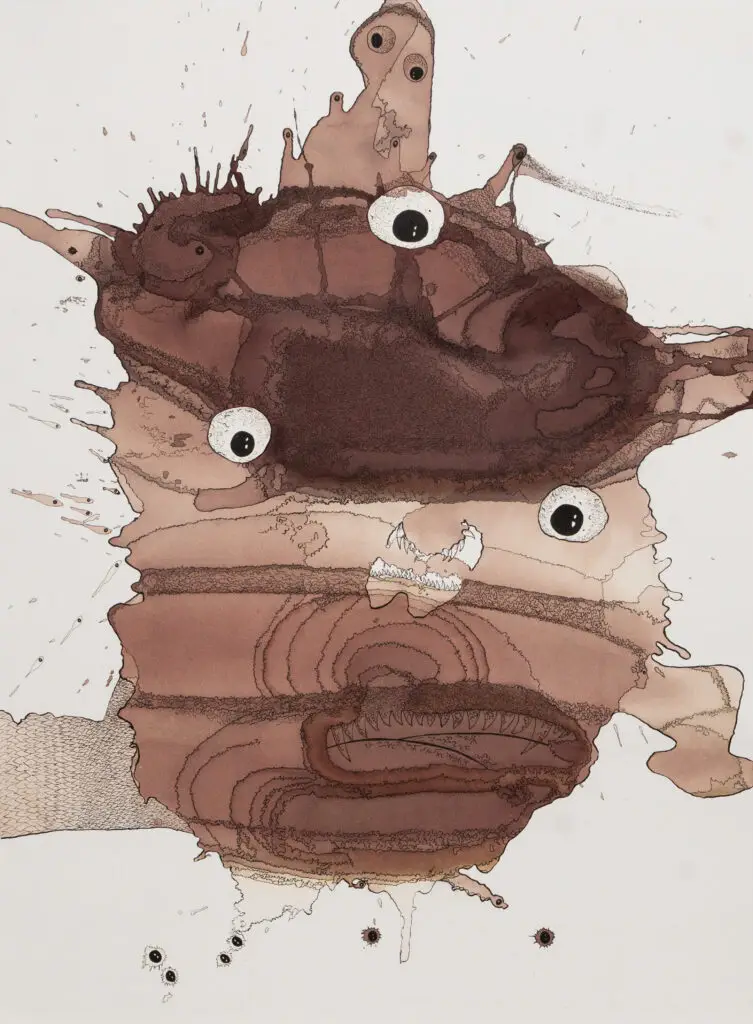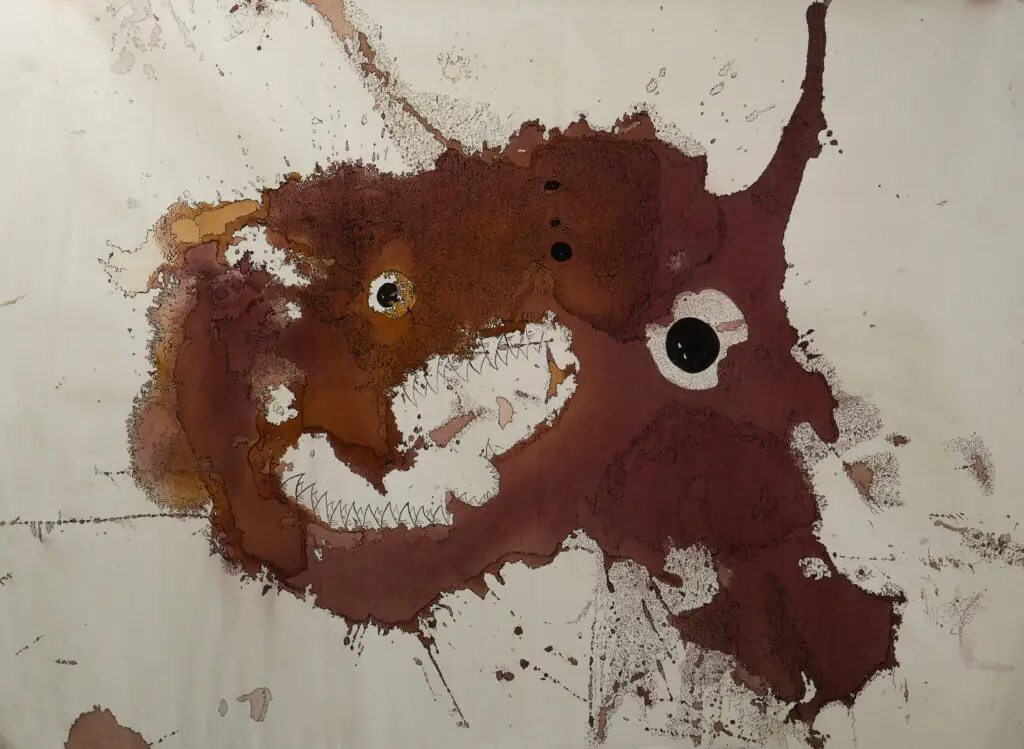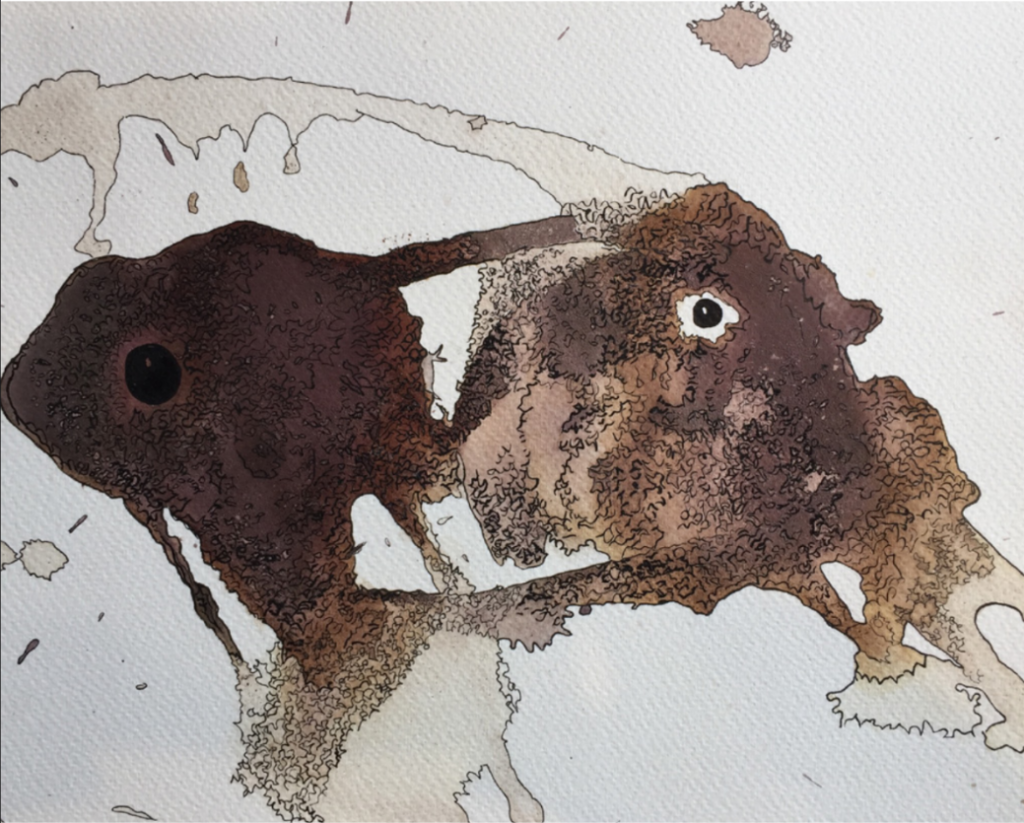
Monsters in the deep
This work represents the beginning of Poseidon’s relentless revenge against Odysseus. Motivated by the desire to avenge his son, the Cyclops Polyphemus, the sea god unleashes a ten-year chase.
The image captures this pivotal moment, showing a series of sea monsters emerging from the depths. They lurk stealthily, studying the best strategy to launch an imminent attack on Odysseus. The composition evokes the tension of this pursuit, an epic struggle between the cunning of the hero and the fury of an offended deity.
Empatia + Popis & Vital + Chinesse ink + bleach
21.5 x 30.5cm
2024
